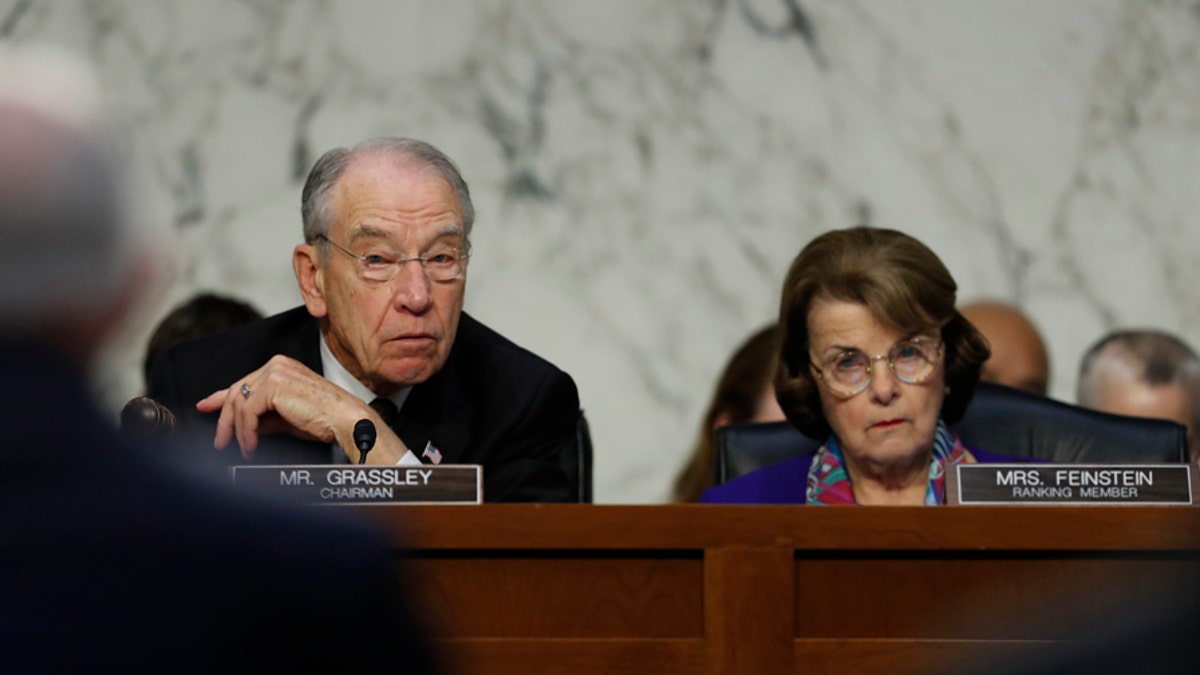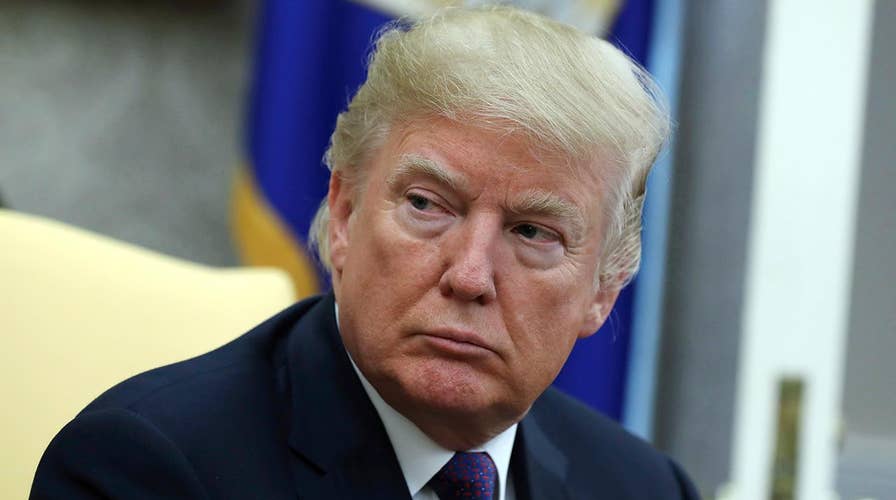Trump: 'Disgrace' that media won't cover 'uranium scandal'
President Trump says the 'real Russia story' is not allegations of collusion during the 2016 presidential election, but rather how Russia acquired control of 20 percent of U.S. uranium mining capacity.
President Trump on Thursday accused the “Fake Media” of ignoring new details about the 2010 approval of a controversial uranium deal with a Russian company, amid scrutiny of potential “conflicts of interest” for Hillary Clinton and the Obama administration.
“Uranium deal to Russia, with Clinton help and Obama administration knowledge, is the biggest story that Fake Media doesn't want to follow!” Trump tweeted.
A day earlier, Senate Judiciary Committee Chairman Chuck Grassley, R-Iowa, vowed at a public hearing to “get to the bottom of this issue.” This was as The Hill reported that the FBI had evidence as early as 2009 that Russian operatives used bribes, kickbacks and other dirty tactics to expand Moscow’s atomic energy footprint in the U.S. -- yet the Obama administration approved the uranium deal benefiting Moscow anyway.
Trump on Thursday also took another Twitter swipe at the firm behind the controversial anti-Trump dossier, after Fusion GPS officials took the Fifth during an appearance on Capitol Hill on Wednesday.
“Workers of firm involved with the discredited and Fake Dossier take the 5th. Who paid for it, Russia, the FBI or the Dems (or all)?” he wrote.
The president and his allies occasionally have cited both the dossier – a salacious document whose origin is shrouded in mystery, but linked to a company that allegedly did business with Russian figures – and the uranium deal to counter allegations of Trump-Russia collusion, effectively arguing Democrats have links to Moscow, too.
As for the Russia company probe, The Hill reported overnight that Grassley is seeking permission to interview the FBI informant who helped agents uncover the corruption. His lawyer Victoria Toensing told The Hill that the informant was prevented from disclosing certain information to the courts and Congress after signing a nondisclosure statement and was threatened by Justice officials when he tried to reveal some information in a lawsuit last year.
Grassley on Wednesday released a series of letters he fired off last week to 10 federal agencies, addressing his concerns in detail and raising the question of whether the committee that approved the uranium transaction was aware of the FBI probe. The Committee on Foreign Investment in the United States (CFIUS) included then-Secretary of State Clinton.
The deal in question, which was previously reported, involved the 2010 approval of a partial sale of Canadian mining company Uranium One to Russia’s Rosatom nuclear company. The U.S. was involved because the sale gave the Russians control of part of the uranium supply in the U.S.
Grassley wrote in his letters that he’s not “convinced” by previous “assurances” that there were no unresolved national security concerns. Grassley, in his hearing remarks and letters, raised two key issues.
It had been previously reported that figures tied to the transaction gave donations to Bill Clinton and his family foundation, but Grassley wrote that he has learned additional details about a $500,000 fee the former president got from a Russian investment bank for a June 2010 speech. He wrote that the bank’s senior officers include former Russian intelligence personnel, and sources had described the company as an “extension” of the Russian government.

Senate Judiciary Committee Chairman Chuck Grassley, R-Iowa, left, and ranking member Sen. Dianne Feinstein, D-Calif., look to Attorney General Jeff Sessions as he testifies before the Senate Judiciary Committee on Capitol Hill in Washington, Wednesday, Oct. 18, 2017. (AP Photo/Carolyn Kaster) (AP)
“Notably, in the same month as the Clinton speech, Uranium One and Rosatom notified CFIUS of the Russian government’s intent to acquire 20 percent of the United States’ uranium assets. The next month, in July 2010, Renaissance Bank reportedly assigned Uranium One a ‘buy’ rating, a move that would principally benefit its Russian investors,” Grassley wrote. “The donations raise concerns about potential conflicts of interest for Secretary Clinton and the Obama administration.”
Further, Grassley raised concerns about the FBI probe into “corruption and extortion” involving employees of a Rosatom subsidiary dating back to 2009 – before the 2010 approval.
As noted in The Hill, the feds did eventually go after Vadim Mikerin, a Russian nuclear industry official, in connection with the investigation. He was later sentenced, in 2015, to 48 months in prison in connection with money laundering allegations.
But Grassley wants to know whether the committee that approved the transaction was aware of the ongoing criminal probe at the time.
When details of the Uranium One deal first emerged in 2015, Clinton’s campaign downplayed the allegations.
"No one has produced a shred of evidence that Hillary Clinton ever took action as Secretary of State in order to support the interests of donors to the Clinton Foundation," a spokesman said at the time. "To suggest the State Department, under then-Secretary Clinton, exerted undue influence in the U.S. government's review of the sale of Uranium One is utterly baseless.”
Fox News' Brooke Singman contributed to this report.






















